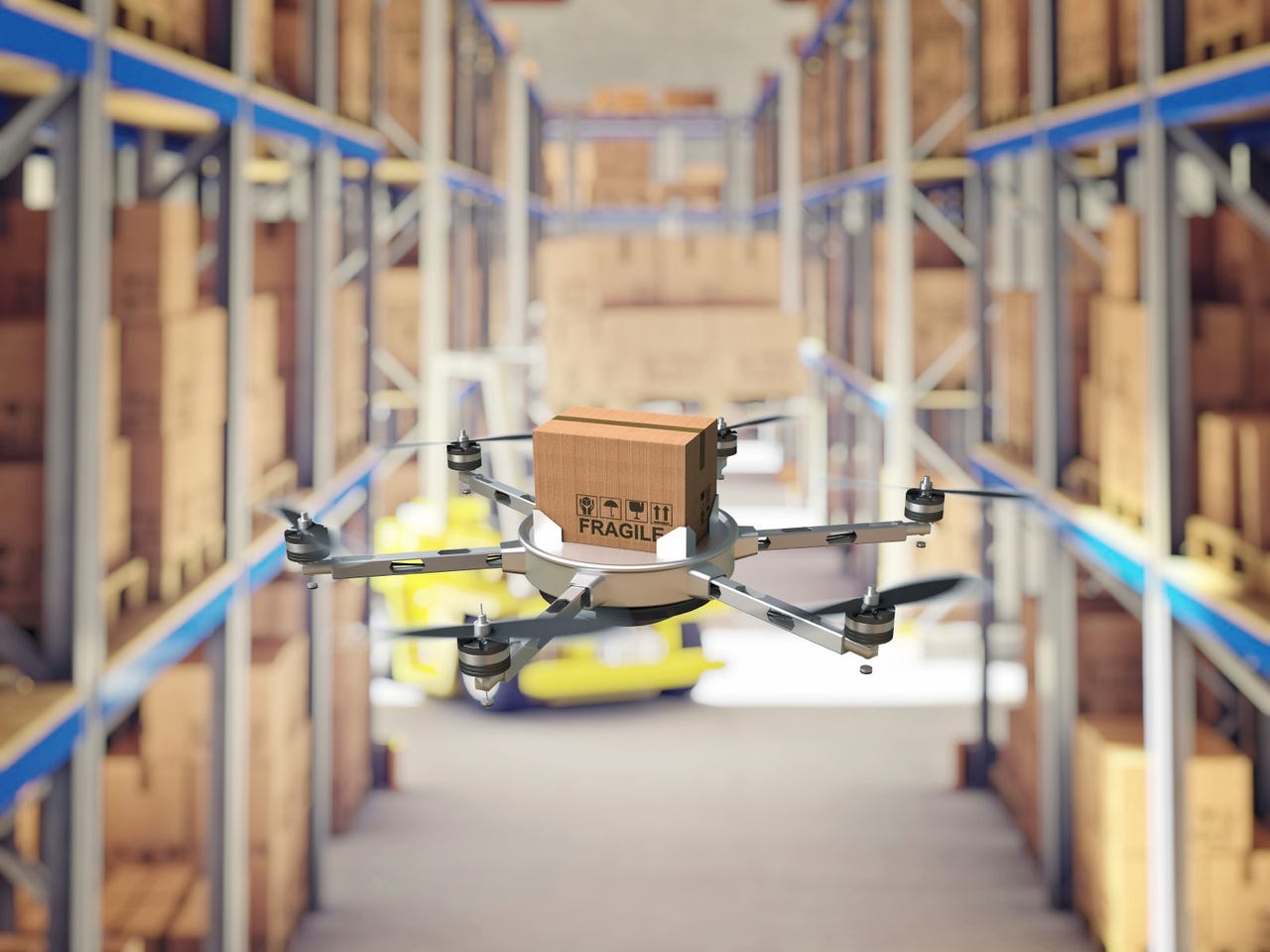Walmart's drone ambitions are real, and smarter than Amazon's


Walmart will introduce drones into its regional warehouses in the next six to nine months.
Journalists are obsessed with Amazon's bid to offer delivery-by-drone services in the next few years. For the most part that obsession has kept us from talking about other more pragmatic retail applications for commercial drones.
It's just that the idea of a drone zipping through the air with a five-pack of Hanes boxer-briefs in tow is really really alluring ... journalistically speaking.
Robotics
But Amazon's plan is also fraught with stumbling blocks. It's not clear the FAA will allow unrestricted drone delivery in urban areas, for example. And insurance for commercial drones that fly over people might make the whole idea cost-prohibitive.
Walmart has a plan that may be a lot more sensible, even if it's not quite as head turning as ballistic underwear delivery. Walmart's drones will fly exclusively inside its warehouses.
As opposed to Amazon's drones, which are likely to be autonomous, Walmart's idea is to use remote controlled flyers that can capture 30 frames per second of products on warehouse shelves. The information can be used to determine which items are incorrectly stocked and which are running low. According to Reuters, checking warehouses manually currently takes Walmart employees about a month. With drones the process will take a day.
By limiting use to the known and confined environment of its regional warehouses, Walmart will operate under existing commercial drone regulations and doesn't need to wait for FAA rule-making on deliveries. The controlled environment of the warehouse limits liability while easing some practical concerns. It'll be much easier to keep a fleet of drones charged in a warehouse environment, for example, and there's no risk of fly-aways.
Interestingly, the drones may provide Walmart with a cheap way to gain some ground on Amazon's warehouse logistics. The internet retailer bought Kiva Systems, the leader in automated warehouse logistics, in 2012, and that acquisition has largely enabled Amazon to process and deliver same-day and next-day orders, an offering that's become a cornerstone of its business model.
Other retailers have struggled to catch up, and the race is now on to automate and streamline retail warehouses. Walmart may have hit on an inexpensive way to make up some of the ground.